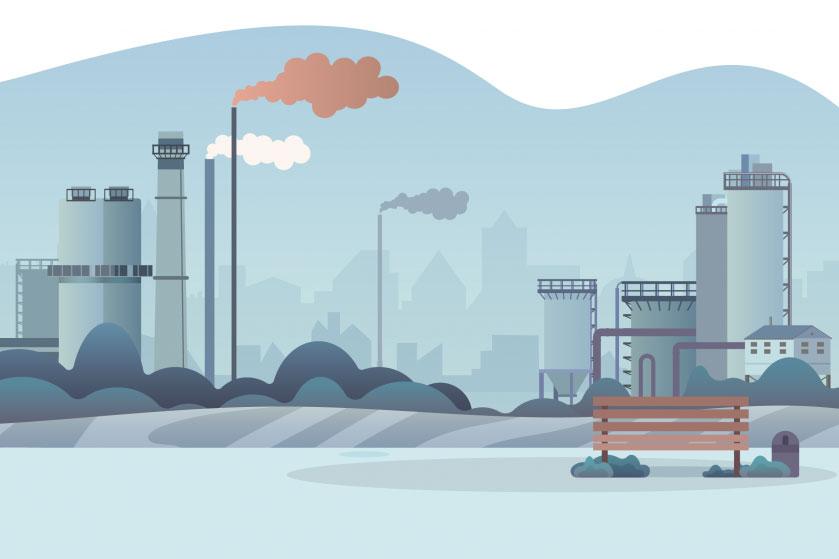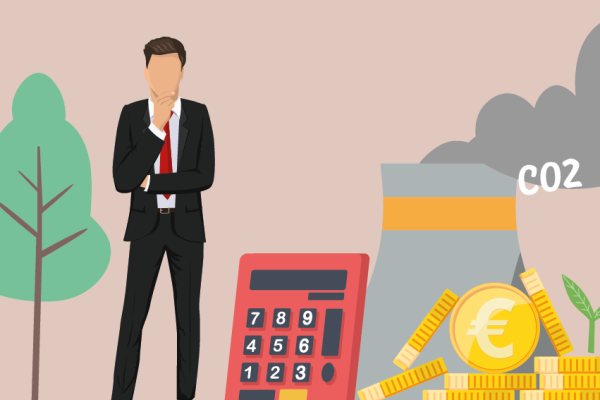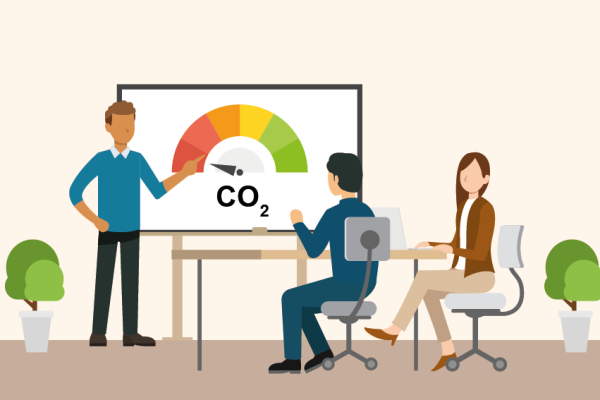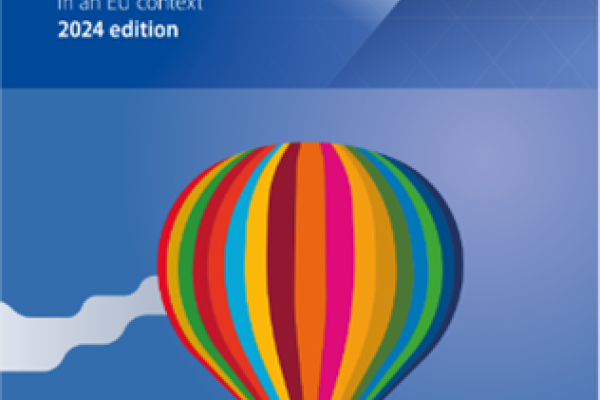The Polluter Pays Principle (PPP) is a simple idea at the core of EU environmental policy: those responsible for environmental damage should pay to cover the costs. The polluter should pay for the price of measures taken to prevent, control and remedy pollution and the costs imposed on society, such as those associated with impacts on health, loss of ecosystem services, or the economy.
The PPP is a tool to respond to market failure where the price of goods and services incurred by the polluter does not fully reflect these costs. Therefore, market prices are distorted and the polluter is not sufficiently incentivised to prevent pollution.
The PPP corrects the market mechanism by introducing the right price signals, which provides an incentive for pollution reduction and investments towards clean technology, and supports the just transition by shifting the burden of pollution from society onto polluters.

How can we better apply the Polluter Pays Principle?
Recognising the partial implementation of the PPP, as identified by the European Court of Auditors 'Special Report 12/2021: The Polluter Pays Principle: Inconsistent application across EU environmental policies and actions', the Commission announced as part of its Zero Pollution Action Plan that it would undertake a fitness check (evaluation) of current implementation.
This will allow the Commission to identify where the principle is well applied and where there is scope for further implementation. The fitness check will be published in 2025 and will allow for more informed choices on how to better implement the polluter pays principle. Information on the fitness check is available here.
There are plenty of successful instruments for implementing the polluter pays principles already applied at the national level, which could be used more widely. See here our publication on 'Candidates for taxing environmental bads at national level'.
Toolkit on the Polluter Pays Principle
Below you can find the 2021 toolkit, which sets out different mechanisms for applying the PPP.

Environmental taxes, charges or fees add extra costs to the use of products or services that reflect the environmental harm they cause.

Trade permit schemes set a cap or quota for pollution in a given area, and only allow actors in that area to pollute according to the quantity of permits they hold.

Deposit refund schemes charge users an extra fee when they buy a product, which is refunded if the product packaging is returned for recycling or reuse.

In these schemes actors must compensate for environmental damage in one place by paying for equal or greater environmental restoration somewhere else.

A variety of arrangements through which financial incentives are offered to actors to encourage them to not cause environmental harm.
Myth-busting about polluter pays instruments
While there are many examples of economic instruments designed to make polluters pay in place across the EU, they still only contribute a minor share – less than 10% - of total government revenues in all the Member States.
This section provides evidence to dispel some common myths about green taxes and other forms of environmental economic instruments, that may be standing in the way of their wider adoption.
In general, higher income households consume more goods and services that cause environmental damage than lower income households, and so will pay more in green taxes in absolute terms. But because green taxes tend to represent a higher proportion of the income of lower income households, they are generally considered to be socially regressive.
This can easily undermine the social acceptability of such measures, especially if alternative options are not available for people to change their consumption behaviour. An example is the ‘gilets jaunes’ protests in France in response to fuel tax increases that were seen to hit car-dependent working class and rural communities hardest.
However, with careful design, green taxation can be fair, particularly if the revenues are recycled to benefit lower-income and marginalised communities. Another option to make green taxes fairer is to use revenues to reduce taxes in other areas, such as progressive cuts to labour taxes for lower-income earners.
The IEEP et al. study for DG Environment modelled the distributional impacts of a broad range of green taxes across EU Member States with revenues used to cut income taxes. This package of measures was found on average across the EU to increase GDP and jobs, while increasing incomes most for the lowest income groups.
Taxation and other pricing instruments can lead to higher production costs that put companies at a disadvantage compared to their competitors who are not subjected to such a tax. Such impacts are, however, highly context-specific, and can be addressed through careful policy design.
Analysis of the impacts of several green taxes on competitiveness found mixed results. In the case of a tax on NOx emissions from industries like energy or steel production, for example, only very small net effects on competitiveness were found due to the structure of international demand in those sectors.
In the case of taxes on pesticides and fertilisers, however, more substantial competitiveness impacts were found as a result of higher export food prices. But by using a part of the tax revenues to invest back into the agriculture sector, it may be possible to offset the negative economic impacts from a pesticide tax through economic stimulus and efficiency gains from the investment.
Green taxes can have two objectives: both to cover the costs to society of environmental harm caused by a product or service, and to incentivise households or businesses to change behaviour to avoid causing such harm. There are lots of examples where careful design of green taxes or other economic instruments have served not merely to raise revenues but have resulted in substantial environmental benefits.
The design of pricing instruments is key to their environmental effectiveness. For instance, the rate of a tax is important to influence behaviour. If the difference in price between more and less environmentally-friendly behaviour is too small, the instrument will not have any impact. Pricing instruments will also always be more effective where they are implemented in the context of broader supportive policy measures.
The introduction of environmental pricing instruments – like many forms of highly visible taxation – can easily attract opposition. But it is possible to address public concerns through meaningful stakeholder consultation and engagement in the design and implementation of green pricing measures.
Given that one of the objectives of green taxes and other types of green pricing instruments is to encourage consumer or business behaviour change, revenues from such schemes can be expected to decline over time (assuming it is cheaper to change behaviour than to pay the tax). One way to address this is to expand the environmental tax base by introducing new polluter-pays instruments.
The IEEP et al. study for DG Environment includes modelling of the introduction of an expanded basket of green taxes introduced across the EU with equivalent income tax cuts, finding that such measures would, on average, support employment creation and GDP growth.
Given that one of the objectives of green taxes and other types of green pricing instruments is to encourage consumer or business behaviour change, the revenues from such schemes can be expected to decline over time (assuming it is cheaper to change behaviour than to pay the tax). This leads some stakeholders to conclude that such measures are not a long-term, sustainable source of government revenues.
While this trend can certainly be observed in some cases, such as the declining revenues raised from the plastic bag levy in Ireland, there are two ways in which such concerns may be addressed. Firstly, governments may choose to increase tax rates over time – as was the case with the NOx tax in Sweden, the municipal waste and incineration charge in Catalonia, Spain, the waste tax in the Netherlands, the landfill tax in Greece, the waste disposal charge in Estonia or the air pollution fee in Czechia, for example.
Alternatively, governments may choose to expand the environmental tax base by introducing new polluter pays instruments. The IEEP et al. study for DG Environment includes modelling of the introduction of an expanded basket of green taxes introduced across the EU with equivalent income tax cuts, finding that such measures would on average support employment creation and GDP growth.
More information
You can read more about polluter pays instruments across the EU in the study “Green taxation and other economic instruments – Internalising environmental costs to make the polluter pay” by IEEP et al., along with its annexes.






